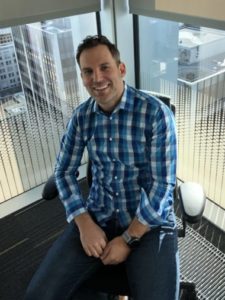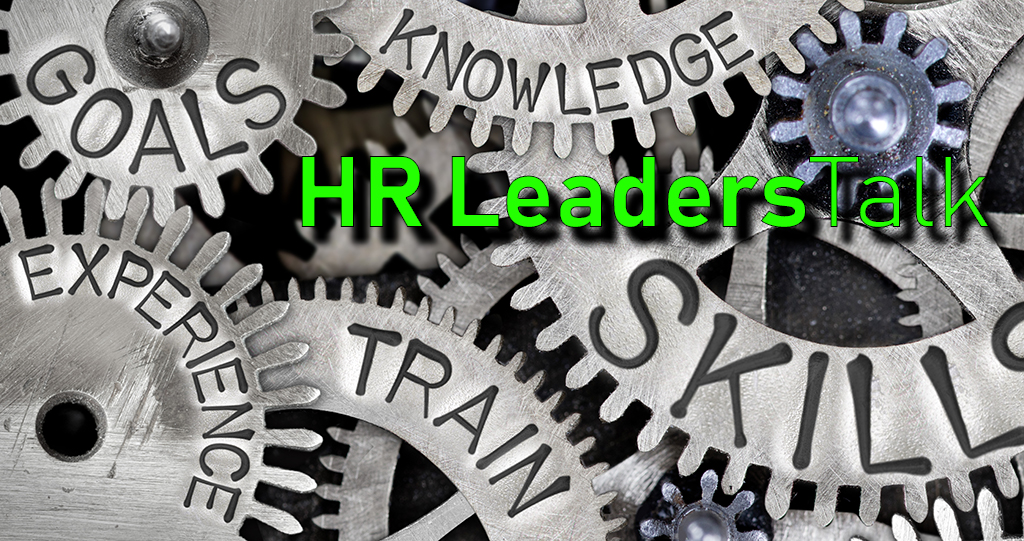HR LeadersTalk with Michael Weeks of Amazon
In every issue of PeopleTalk magazine we try to speak with an HR leader to get their thoughts on various HR related topics and pick their brain for some advice they may have for the next generation of HR stars who are just starting out in the profession.
In the winter issue, Drew Railton, CPHR caught up with Michael Weeks of Amazon.
Michael leads HR for the Amazon development offices based in downtown Vancouver, B.C., supporting the many Amazon products used and known around the world. He enjoys the speed and challenge of working for a global brand and the unique HR opportunities it provides.
Here is what Michael had to say.
Why did you choose HR or how did it choose you?
I originally set out to be an accountant, but quickly realized I didn’t have the patience. I worked for a few years driving a five tonne truck moving furniture when I was in college. Being on the road, I was acutely aware that I was the last point of contact for our valued customers and, as such, a pretty vital piece of the puzzle if we ever wanted repeat business.
The problem was that the company treated the employees quite poorly. Employees were talked down to from senior leadership, not trusted and generally not well supported when it came to safety—which is kind of important when you’re lifting 300 pound fridges! I saw firsthand the impact on the business when peers spoke about the company, and was witness to negative behaviours such as time theft and poor service among other things. The link from effective people management to business success was apparent. After that experience I signed up for the BCIT HR program and never looked back.
What was the breakout project or thing you did to really accelerate your career?
I’ve been fortunate to work in cultures that supported my growth. The most recent project was the development of an HR data analytics strategy. It started out simple enough, a proposal outlining what was needed to produce real-time access to quality data. I quickly discovered how much I had to learn. I built the case to hire the company’s first HR data scientist, oversaw an overhaul of our backend tech infrastructure and integrated the work into another initiative my team was driving at the same time—workforce planning. Ultimately, we were successful linking to our budgeting and strategic planning process and helping solve for recruiting capacity and delivery. Overall it was a two-plus year journey and an amazing learning experience, not to mention a great opportunity to bring my number crunching aspirations into HR.
What advice do you wish someone had given you earlier in your career?

Michael Weeks, Amazon
Take the time to think about what’s possible, but always get your day job done. I just participated on a leadership panel and was asked this question. My advice was to make an impact; it’s likely not going to come from doing your responsibilities outlined in your job description. Seek out the white space, figure out how to automate the things that don’t add value and do the things that make a difference that no one is expecting.
What do you think is the greatest emerging opportunity/challenge for HR professionals?
Analytics will continue to flourish, but I see a huge trend towards this concept of talent marketplaces. Consulting has had it for years, but the notion of moving organizational design from traditional, functional alignment to self-forming around specific projects or initiatives supports the general shift towards gig economies and agile frameworks. It is exciting to see how this all links together to enrich the employee experience and execute faster.
With social media and technology advancements, what is your prediction for the future of HR as a function?
I see HR departments staffed much differently. Specifically I think you’ll see more HR teams hiring developers, data scientists and marketing folks as we drive towards automation and align employee experience with customer experience. Today I work closer with these functions than ever before. At Amazon we already have a large tech development team that sits in HR and we are fortunate to have a lot of functioning tools at our fingertips that drive our business and set us up to be successful.
You hear of movement into things like AI, but I see that as a long game for most companies as it’s such a heavy lift to get there. If you dive deep into your data infrastructure, I think you’ll find most companies struggle immensely with getting accurate data at even the most rudimentary level.
Advice for areas or hot skills you would develop as a young professional?
I’m biased as I work in tech but, I would say learn to code. You don’t need a degree, but it helps to know the difference between SEO and HTML. I haven’t had the hours (or patience) to do this yet, but the world is moving to tech, and knowing what it takes to automate or develop would be a massive advantage even to HR. I just enrolled my 9 year old in a Coding Camp — it’s the new life skill.
Do you have a mantra that helps you get through tough times?
Tough times are the mark of a leader. Plain and simple.
Drew Railton, CPHR is managing partner, Western Canada for Caldwell Partners.
For the latest HR and business articles, check out our main page.










